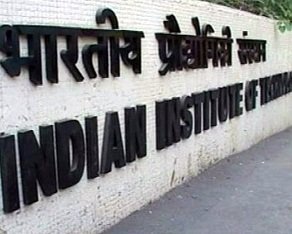There is nothing constant like change. And there is nothing that can reinforce that than OURSELVES!!
The way we eat, the way we think, the way we work, the way we connect, the way we communicate…every aspect of life. And this is what shapes the changing face of human capital.
But what exactly do we mean by Human Capital?
Human capital is the stock of competencies, knowledge and personality attributes embodied in the ability to perform ,so as to produce economic value. Human capital is vitally important for an organization’s success (Crook et al., 2011); human capital increases through education and experience.Economist Theodore Schultz invented the term in the 1960s to reflect the value of our human capacities. He believed human capital was like any other type of capital; it could be invested in through education, training and enhanced benefits that will lead to an improvement in the quality and level of production.

As human resource professionals we deal with change all of the time. We add and lose employees, change the assignment of duties, assist with altering the strategic direction of the organization, as well as deal with daily challenges. The ability to plan for change, manage change, and get the most out of change has become key competencies for professionals over the last few decades.
Today human capital is measured and influenced by information that it accesses and utilizes in every single interaction. Today we are no more judged by our experience and education only, but also by what are the competencies we bring to the table. The world outside our circle of influence has multiplied 10 fold and what is happening across continents can be accessed in a click of a button.
The Digital exposure has brought a whole new dimension to how we perform. Nothing is too far or unknown and we are exposed to different cultures in no time. Being in the Hr function let me define the HR executives of the future—they need to be proactive on handling the global talent pool, knowledge experts on talent sources, coaches to the organization on linking business outcomes to human capabilities, managers of organizational partnerships (outsourcers), facilitators of organizational transparency to all stakeholders, and teachers to incoming talent (which means that they are likely to themselves be highly educated individuals). In this process of evolution, as HR executives become more of facilitators and strategists, what are the skill sets and competencies they need to take to the next level?How does an HR personnel acquire this skill?
This is not the case in HR department it is the reality in every function across the organization and also true in the case of our personal lives. We have involuntarily learnt to multitask and now it is a part of how we live.We as human beings have definitely progressed in many ways over the years and after the invention of the wheel very few will disagree that the advent of the Internet has changed the way we function!Today we are far more equipped with data to understand, forecast and analyze and that makes (probably) far more capable to embrace change and contingencies.
The answer is now on investing in education of human personnel and capital. Some companies also invest on their employees by sending them to different locations to understand the business.One example that we can see is of China. Did China grow because of infrastructures and FDI? One would have thought that the answer is so patently clear. Ask any Indian mildly familiar with China: “What is the China model that made the country so successful economically?” He would most likely say it is infrastructure and foreign direct investment (FDI). This keen China observer would then likely proceed to bemoan the lack of infrastructures and FDI in India.
While explaining the growth differences between China and India by pointing to this difference in infrastructures and FDI, this Indian observer-and many others like him in India-committed a classic analytic error known as reverse causality, i.e., he thinks that it is infrastructures or FDI that caused the Chinese growth when in reality it is the growth that caused China to have infrastructures and FDI.
The true success factor for Chinese growth is the huge investments made in human capital development and much of that was made in the 1950s, 1960s and 1970s. I am always amazed that so many Indian policy makers, business elites and intellectuals chose not to look at this aspect of China model as something India can learn from. Instead, they turn their gaze at the glittering skylines and the fancy airports in Beijing and Shanghai.
When economists began to measure the sources of economic growth, what previously had been considered an unexplained residual – an unexplained factor – became identified as human capital. From studies of the development of the American economy, and the sources of growth of many countries around the world, it has become evident that human capital—the skill of the population—plays a major role in the productivity of nations.
You might like reading:

India’s Education system – The real truth !
“What is wrong with the education system of India?” This is one of the most asked questions today especially in India. The form that Indian Education System has taken today rather makes one fathom if there is in fact anything that is right about it! “Education is not preparation for life;education is life itself.” -John Dewy Education imparts an individual with […]
I am passionate about learning and trying out new things, Sadaf Zia NMIMS Mumbai 2016-18
Interview with Sadaf Zia NMIMS Merit Rank : HR Rank 316 Firstly, congratulations onconverting your call to NMIMS. Our readers would like to hear something about your background? I did my schooling from DPS Bhilai following which I did my B.Com from St. Thomas College, Bhilai. I did not have any prior work experience. “Why MBA” must be a common question […]






























